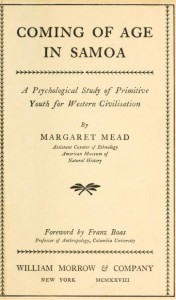Scholars of the Pacific are mourning the loss of Teresia Teaiwa this week. Teresia was an iconic figure in Pacific Studies: A poet and critic, dedicated teacher, and determined institution builder. Teresia was the director of the Va‘aomanū Pasifika (Pacific Studies Center) at Victoria University in Wellington, the first and only place (afaik) where you can earn a Ph.D. in Pacific Studies.
I only had a chance to meet Teresia a few times, and I can’t speak to her life the way that so many others can, except to say that she was an impressive figure in every sense whether it be reading poetry or rethinking Pacific Studies. She had mana. She was a trenchant critic of colonialism and other things, but in person she was hardly austere or intimidating. She was an approachable person, down to earth, with a sense of humor. I think in her mixture of dignity and a willingness to laugh she was deeply Pacific. So many people counted on so many more years of work and inspiration from her. I can’t say I knew her enough to mourn her the way her family and friends do, but her presence and project impacted everyone who ever met her or read her work. Just being in the same room was enough. She was on a journey, and still is. But we had hoped to spend more time traveling with her then we were allowed.
Teresia was a prolific author, and much of her work is open access. However, google searches for her work produce a maze of citations that is hard to find your way around in. I feel like my way to contribute to her memory is to help provide a guide to her work which can help future readers stop digging through search results and start reading Teresia. What follows is a quick bibliography of work that is available open access. I’ve included both poetry and academic publications. I’ve linked to stable repositories as much as possible so the information on this page will age well. Many of these links will take you to a repository entry and you will then have to click through to the PDF. Others are online journals which lack librarian-friendly meta-data. In all cases I’ve tried to give reasonable citations but I’m sure there are irregularities in the format that I’ve used. There are also probably typos. Also, please note that these are just the open access texts Continue reading
